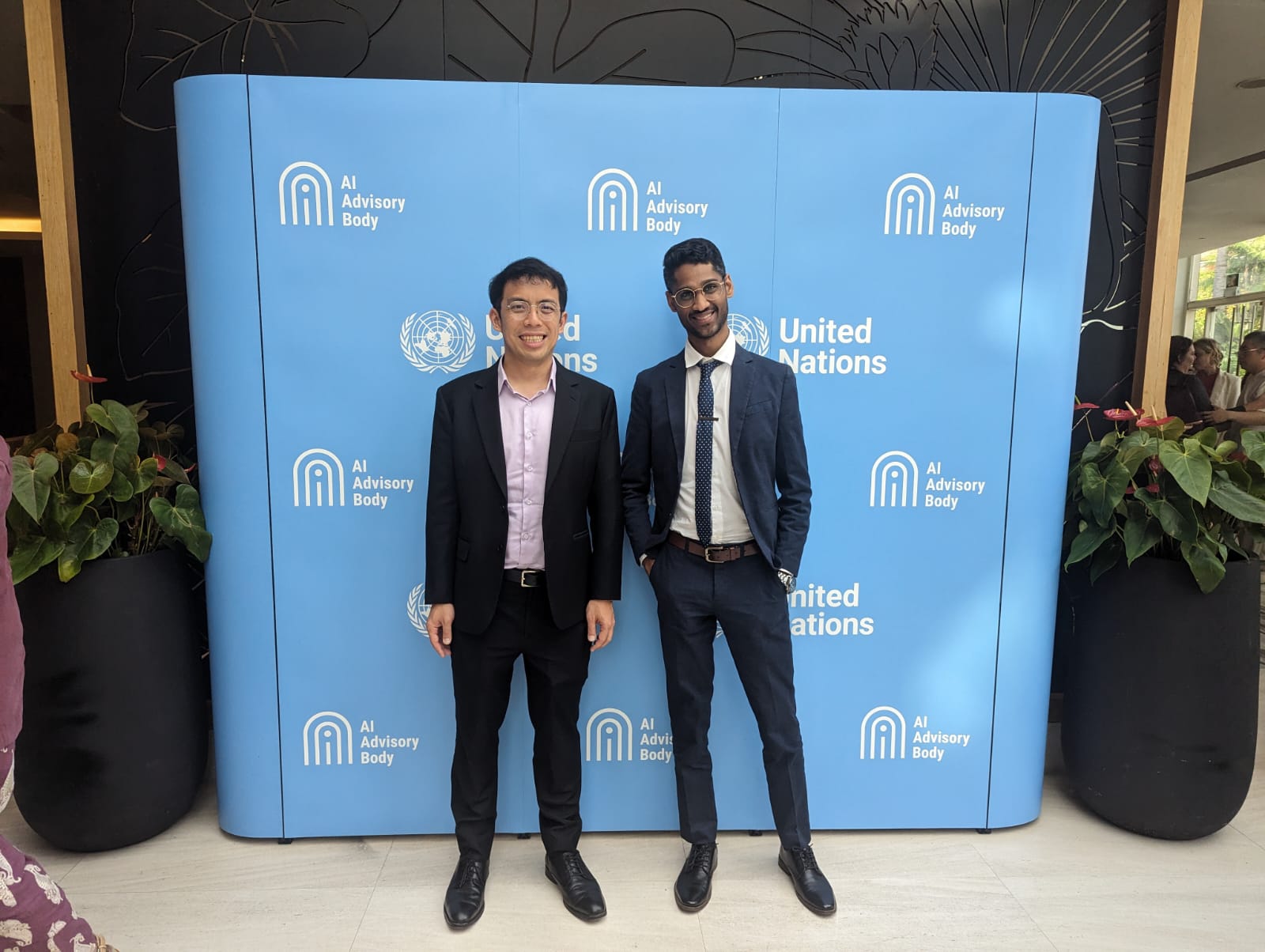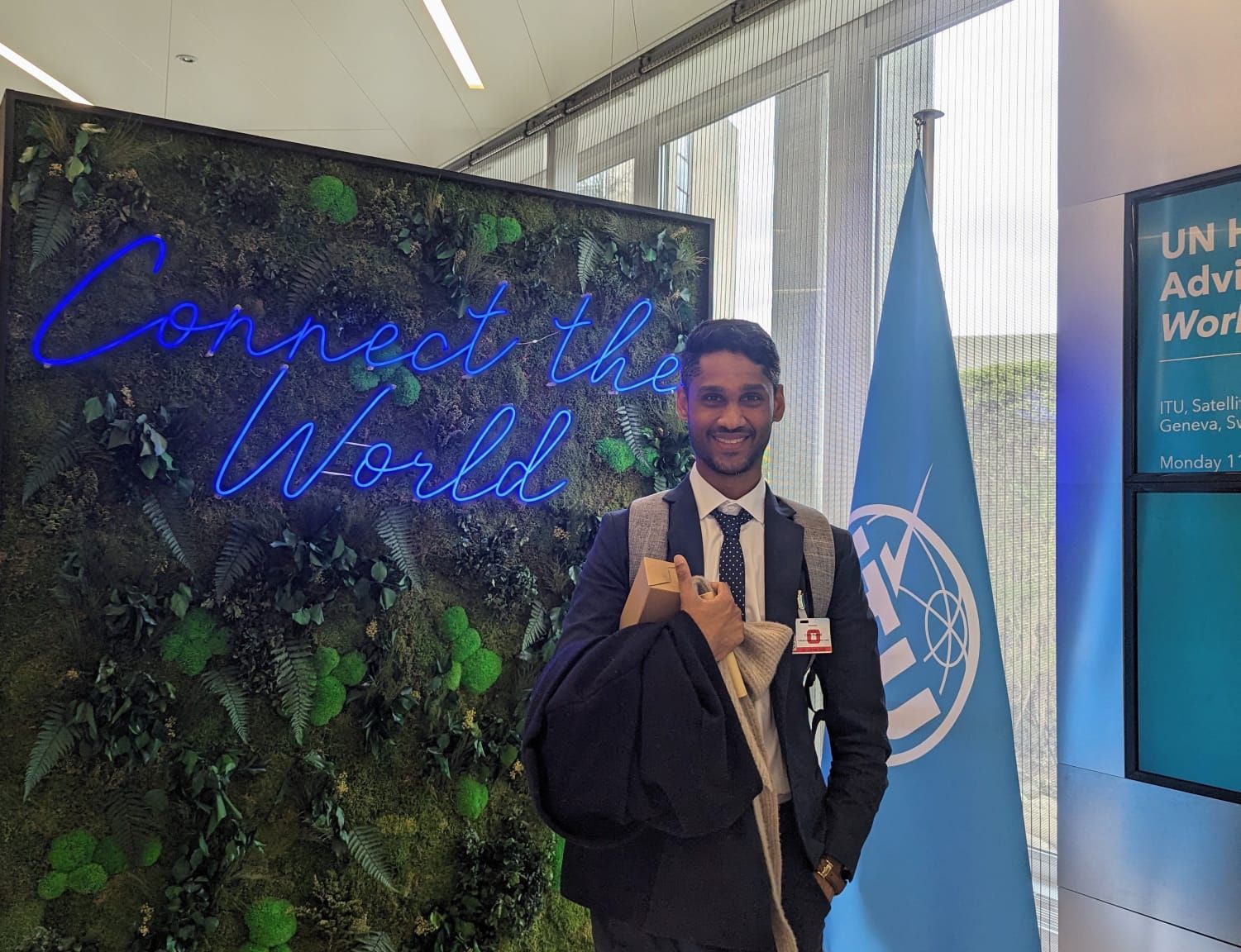Biography

Dr. Craig Ramlal is the Head of the Control Systems Group in the Department of Electrical and Computer Engineering, Faculty of Engineering and the Principal Investigator of the Intelligent Systems Laboratory (https://intelsyslab.com), at the University of the West Indies, St. Augustine. In 2023, the United Nations recognized him as a preeminent AI leader (https://www.un.org/en/ai-advisory-body/about), appointing him to the United Nations Secretary-General's High-Level Advisory Body on Artificial Intelligence. The body's recommendations on governing AI for humanity formed Objective 5 of the Global Digital Compact, which was adopted by member states in September 2024 during the 79th UN General Assembly.
He currently serves as a United Nations Development Programme (UNDP) Global Policy Network’s AI Expert, as a lead on the Institute of Electrical and Electronics Engineers (IEEE) Global Initiative on the Ethics of Autonomous and Intelligent Systems 2.0, on the CARICOM's Security Strategy Steering Committee, the Caribbean Telecommunications Union's (CTU) Taskforce on AI, and as an advisor to the Caribbean Examinations Council (CXC) on regional AI education policy matters.
Previously, he served on the Caribbean Development Bank's technical subcommittee on IRC/RDA, collaborated with CARICOM IMPACS on the regionally adopted Autonomous Weapon Systems Declaration, and acted as a regional coordinator for open data strategy development across Caribbean nations in partnership with the International Development Research Centre (IDRC) and NASA. He developed and authored the founding vision, operational modalities, and strategic focus of the newly formed UWI's Institute for Intelligent Systems, Governance and Human-Centred Technology (INSIGHT), served on the AI subcommittee for writing the adopted AI policy for all of UWI’s campuses and was also an invited peer reviewer for UNESCO's AI Policy Roadmap for the Caribbean. Finally, he led the development of several UWI postgraduate degrees at the UWI, including the Postgraduate Certificate (PGCert) in AI, Postgraduate Diploma (PGDip) in AI, Master of Applied Science (MASc) in AI, Master of Philosophy (MPhil) in AI and Doctor of Philosophy (PhD) in AI.
Through his lab, he has established collaborative partnerships that have led to advancements across multiple fields, including the development of advanced robotics with Rutgers University; deep learning-based auto-diagnostics for asset management with Elering AS and Tallinn University of Technology; blockchain-based systems for water management with the Global Water Partnership-Caribbean; and ventilation systems developed in collaboration with the Trinidad and Tobago Ministry of Health, GoRTT and researchers from the University of Florida to help mitigate the spread of COVID-19. These initiatives have resulted in several implemented systems, as well as numerous technical reports, peer-reviewed journal articles, and conference papers. Dr. Ramlal earned his BSc, MASc, and PhD in Electrical and Computer Engineering through split-site by the University of the West Indies, Trinidad and Tobago, and King Fahd University of Petroleum and Minerals, Saudi Arabia. His research focuses on control strategies, artificial intelligence, and game-theoretic systems.











































